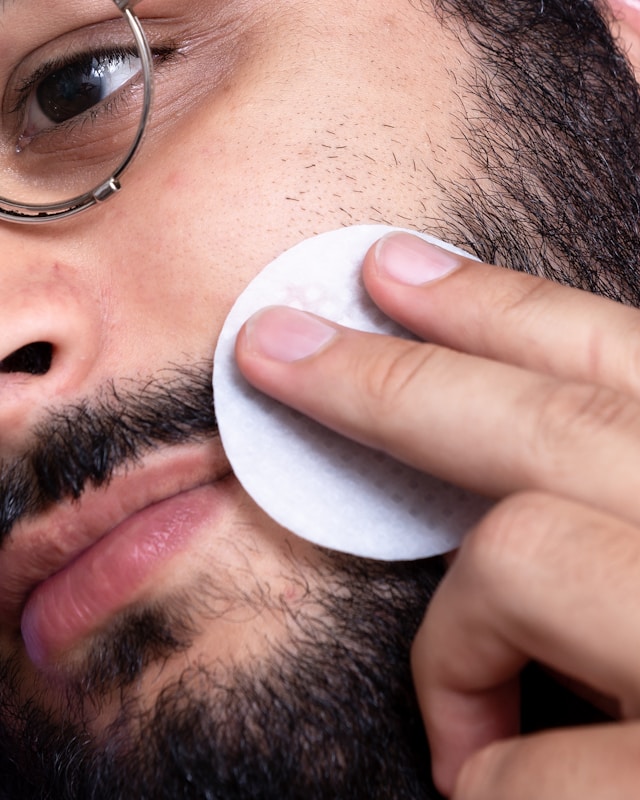Skin health plays a central role in overall wellbeing from early childhood through later years. It acts as more than just a covering; it serves as a protective interface between the body and the external world. Healthy skin supports comfort, confidence, and even systemic health, making attention to its care critical at every stage of life. Across the human lifespan, skin undergoes changes that reflect age, environment, lifestyle, and genetics. Understanding how to protect and nourish skin helps reduce problems and supports quality of life. This article explores the importance of skin health, its role in safeguarding the body, and how attention to care evolves from childhood to adulthood.

The Skin as a Protective Barrier
Skin provides a barrier to protect the body from external threats such as harmful microorganisms, physical injuries, and harmful environmental agents. It regulates temperature, prevents dehydration, and supports immune responses. Children, in particular, have more delicate skin that is thinner and more vulnerable to damage, making skin care crucial early on. This is where Paediatric Dermatology plays a vital role by addressing skin conditions in young patients and guiding parents on safe care practices. Establishing proper skin care habits early helps protect children from problems that could persist into adulthood. Healthy skin in early life creates a foundation that supports comfort and function for years to come.
Childhood Skin Health Challenges
Children’s skin differs from adult skin in several ways that require special attention. It is more sensitive and less resilient, meaning irritations and infections can develop more easily. Common childhood skin issues include eczema, diaper rash, and allergic reactions. Environmental exposures, such as the sun and pollution, can also affect the skin from a young age. Proper hygiene, gentle cleansers, and the avoidance of harsh chemicals are key to protecting delicate skin. Parents should be aware of warning signs such as persistent redness, swelling, or itching, as these could indicate underlying skin problems that need professional attention. Maintaining healthy skin during childhood lays a foundation for overall health and confidence later in life.
Adolescent Skin: Changes and Care
Adolescence brings significant changes to the skin due to hormonal shifts. Increased oil production can lead to acne and other concerns that impact self-esteem. At this stage, education about skin health becomes increasingly important. Simple habits such as cleansing properly, avoiding picking at blemishes, and using sun protection can make a lasting difference. Teenagers should also be aware of how diet, stress, and sleep influence skin condition. Support from parents and healthcare providers can help adolescents navigate these changes while reinforcing habits that benefit skin health well into adulthood.
Adult Skin Health Considerations

Skin in adulthood faces a variety of challenges, including environmental damage, aging, and lifestyle impacts. Exposure to sunlight, pollution, and stress can accelerate skin aging and increase risks for conditions like skin cancer. Adults should be attentive to regular skin checks, moisturising, and protective measures such as sunscreen. Lifestyle factors such as hydration, balanced nutrition, and adequate sleep also influence skin health. Adult years are an opportunity to reinforce and adapt skin care routines to changing needs, addressing both cosmetic and health-related concerns. Healthy skin supports self-confidence and can help prevent more serious problems over time.
Skin Care Through the Aging Process
As people age, the skin becomes thinner, less elastic, and more prone to dryness and wrinkles. Reduced collagen and slower healing can make the skin more vulnerable to injuries and infections. Maintaining skin health during this stage involves gentle cleansing, hydration, and regular protection from sun exposure. Early detection of changes in skin texture, pigmentation, or moles is essential for preventing more serious conditions. Aging skin benefits from products that support repair and nourishment, alongside consistent lifestyle choices that promote overall wellbeing. Caring for skin in later years contributes to comfort, health, and self-esteem.
The Lifelong Importance of Skin Health
Skin health is not just a cosmetic concern; it is a critical aspect of general health that requires attention throughout life. From infancy to old age, skin serves as the first line of defence against harmful elements, regulates body temperature, and enables sensory perception. Developing good skin care habits early sets the stage for fewer problems later in life, and addressing issues promptly improves long-term outcomes. Individuals of all ages benefit from understanding their skin’s needs, adjusting care routines as conditions change, and seeking professional guidance when needed. Skin care is a lifelong practice that supports overall health, comfort, and quality of life.
Taking care of skin from childhood through adulthood is essential for health, comfort, and confidence. Skin is a dynamic organ that changes over time, requiring different approaches and care strategies at each stage of life. Early attention to skin health builds a strong foundation that benefits future years, while ongoing care ensures protection against environmental threats and aging effects. Understanding the needs of skin and adapting routines accordingly can help people maintain its integrity, appearance, and function throughout life. Skin health is an investment in overall wellbeing that pays lasting dividends.


